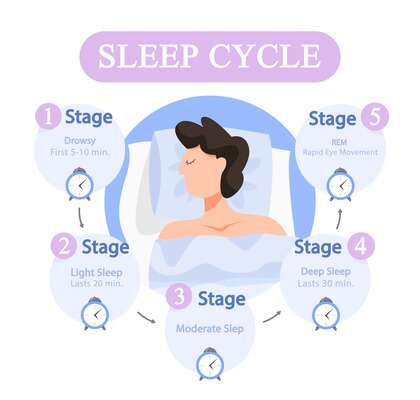Productivity Formula: How to Achieve More by Working Smarter, Not Harder
In today’s fast-paced world, productivity has become a crucial aspect of achieving success. Many individuals find themselves struggling to accomplish their tasks and goals within the limited time they have. The key to overcoming this challenge lies in working smarter, not harder. By understanding and implementing the productivity formula, you can optimize your efforts and achieve more without burning out. In this article, we will explore the fundamental principles of productivity and provide you with practical strategies to enhance your effectiveness. In this section, we will introduce the concept of productivity and highlight its importance in both personal and professional domains. We will discuss the common challenges individuals face when trying to be productive and set the stage for the productivity formula. Before diving into the productivity formula, it is essential to develop a clear understanding of what productivity truly means. We will explore the definition of productivity, its relationship with efficiency, and dispel common misconceptions surrounding this topic. This section will delve into the core principles of the productivity formula. We will break it down into four key steps: To work smarter, you need to have a clear vision of what you want to achieve. We will discuss techniques for setting meaningful goals and aligning them with your priorities. By defining your objectives, you can direct your energy towards the most impactful tasks. Time management is a critical aspect of productivity. We will explore proven strategies for optimizing your time, such as creating schedules, setting deadlines, and utilizing productivity tools. Effective time management ensures that you allocate your resources efficiently. Distractions can significantly hinder productivity. In this section, we will provide practical tips on identifying and eliminating distractions from your work environment. By minimizing interruptions, you can maintain focus and concentration on your tasks. Deep work refers to the state of uninterrupted concentration where you can produce your best work. We will discuss techniques for achieving deep work, including time blocking, establishing a conducive environment, and utilizing mindfulness practices. Deep work allows you to maximize your productivity and deliver high-quality results. In this section, we will explore various tools and techniques that can boost your productivity: Time management apps have become invaluable tools in today’s digital age. We will introduce you to some popular time management apps that can help you track your tasks, set reminders, and optimize your workflow. The Pomodoro Technique is a time management method that promotes focused work intervals punctuated by short breaks. We will explain how to implement this technique effectively and how it can improve your productivity and concentration. Prioritizing tasks is crucial for productivity. We will discuss techniques for categorizing tasks based on urgency and importance, such as the Eisenhower Matrix and the ABCDE method. These strategies will enable you to allocate your time and energy to the most crucial tasks. A conducive work environment can significantly impact your productivity. In this section, we will provide tips for creating an optimal workspace: A cluttered and disorganized workspace can lead to distractions and hinder productivity. We will offer practical advice on organizing your physical workspace, decluttering, and implementing efficient storage solutions. Interruptions can disrupt your workflow and diminish productivity. We will explore strategies for minimizing interruptions, such as setting boundaries with colleagues, using “Do Not Disturb” features on devices, and establishing designated work hours. Ergonomics plays a vital role in maintaining focus and preventing physical strain. We will discuss ergonomic solutions for your workspace, including proper desk and chair positioning, ergonomic accessories, and exercises to alleviate muscle tension.
Efficiency is doing things right; effectiveness is doing the right things. Work smarter to make a meaningful impact.
– Peter Drucker Developing productive habits can enhance your overall effectiveness. In this section, we will explore habits that can positively impact your productivity: A well-designed morning routine can set the tone for a productive day. We will provide suggestions for incorporating activities such as meditation, exercise, and goal-setting into your morning routine to maximize your productivity. Taking regular breaks is crucial for maintaining productivity throughout the day. We will discuss the importance of breaks, provide recommendations for their frequency and duration, and offer suggestions for productive activities during breaks. A healthy lifestyle is closely linked to productivity. We will emphasize the significance of proper nutrition, regular exercise, and sufficient sleep for maintaining optimal energy levels and cognitive function Procrastination can be a significant obstacle to productivity. In this section, we will discuss common causes of procrastination and provide strategies for overcoming it. By understanding the underlying reasons for procrastination, you can adopt effective techniques to combat it. Productivity should not come at the cost of your well-being. Burnout can have detrimental effects on both your productivity and mental health. We will offer guidance on recognizing signs of burnout and implementing self-care practices to maintain a healthy work-life balance. In conclusion, working smarter, not harder, is the key to achieving productivity and success. By implementing the productivity formula outlined in this article, defining goals, managing time effectively, eliminating distractions, focusing on deep work, and adopting productive habits, you can maximize your efficiency and accomplish more in less time. Remember, productivity is a lifelong journey that requires continuous effort and adaptation.Introduction
Understanding Productivity
The Productivity Formula
Define Goals and Priorities
Manage Your Time Effectively
Eliminate Distractions
Focus on Deep Work
Tools and Techniques for Productivity
Time Management Apps
Pomodoro Technique
Task Prioritization



Creating an Optimal Work Environment
Organize Your Workspace
Minimize Interruptions
Utilize Ergonomic Solutions
Adopting Productive Habits
Morning Routines
Regular Breaks and Rest
Healthy Lifestyle Choices
Overcoming Procrastination
Avoiding Burnout
Conclusion





































